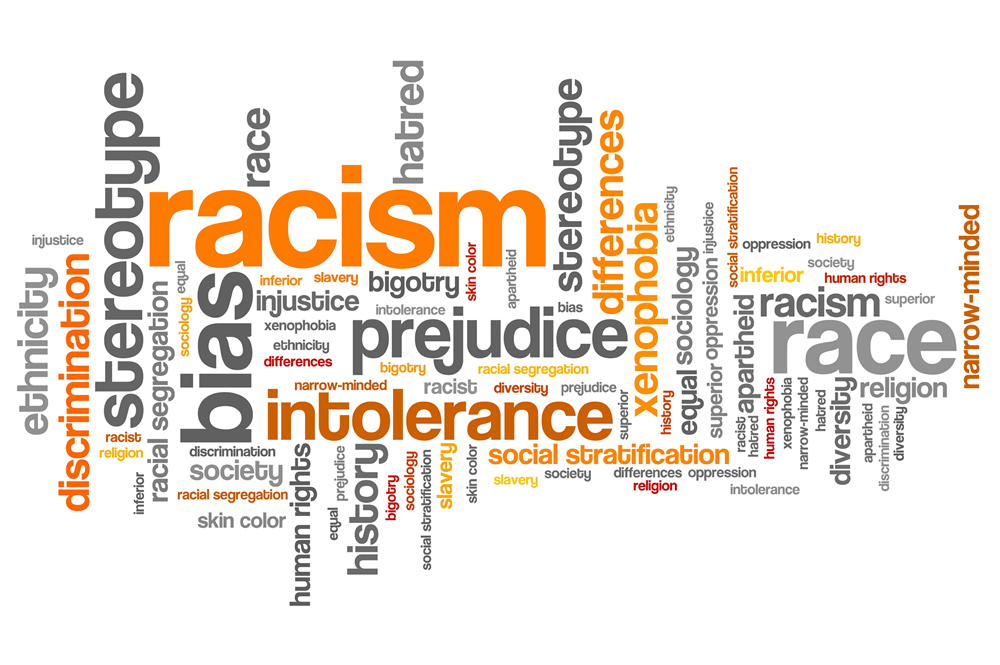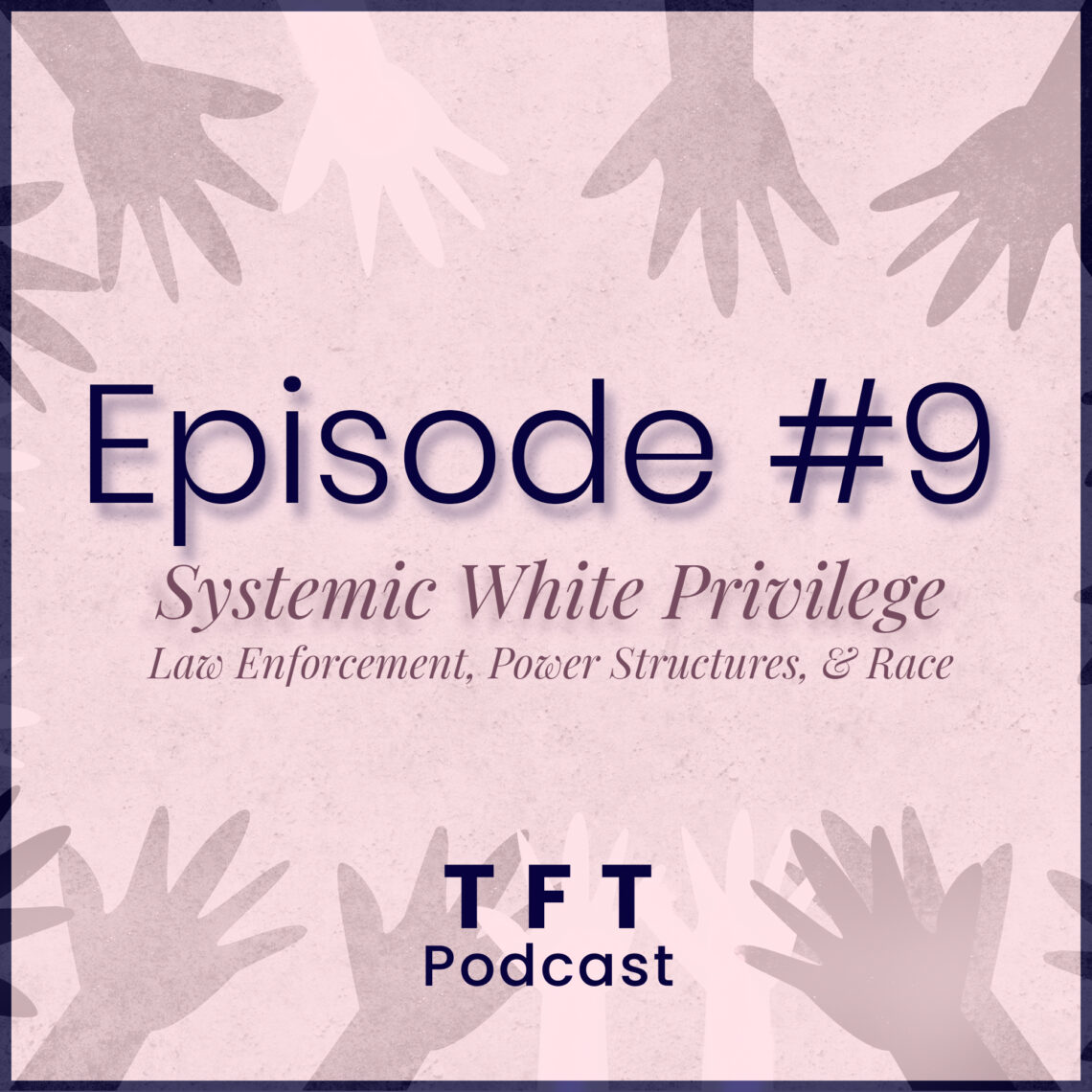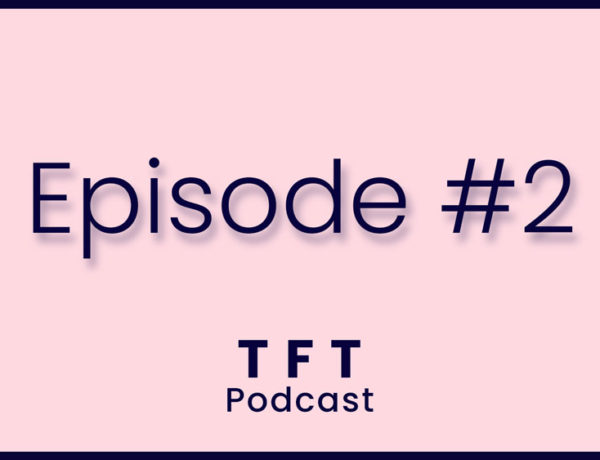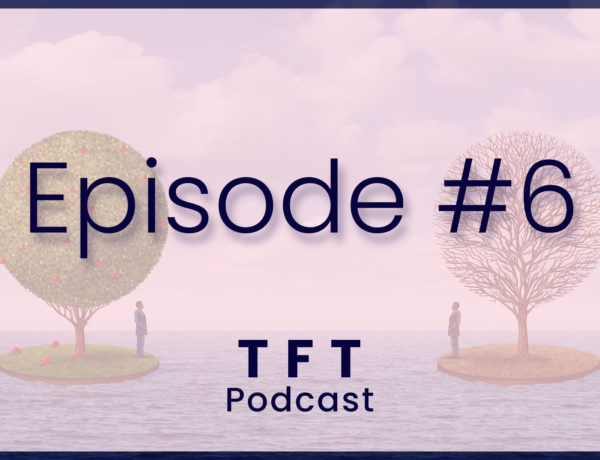Episode Summary
This week, Kelley Richey and Julia Avery discuss current issues involving white privilege, law enforcement and systemic white power structures.

The Sociology of Racism
Definitions of words often associated with “Racism” are listed below for clarity. These definitions are from an article by Matthew Clair (Harvard) and Jeffery S. Denis (McMaster), “The Sociology of Racism.”
The sociology of racism is the study of the relationship between racism, racial discrimination, and racial inequality. While past scholarship emphasized overtly racist attitudes and policies, contemporary sociology considers racism as individual- and group-level processes and structures that are implicated in the reproduction of racial inequality in diffuse and often subtle ways. Although some social scientists decry this conceptual broadening, most agree that a multivalent approach to the study of racism is at once socially important and analytically useful for understanding the persistence of racial inequality in a purportedly ‘post racial’ society
https://scholar.harvard.edu/files/matthewclair/files/clair_denis_2015.pdf
- Racism: Individual and group-level processes and structures that are implicated in the reproduction of racial inequality.
- Systematic Racism: Happens when racist structures or processes are carried out by groups with power, such as governments, businesses or schools.
- Bias: A conscious or unconscious prejudice against an individual or group based on their identity.

White Privilege and Benefits
“Privileges are the economic extras that those of us who are middle-class and wealthy gain at the expense of poor and working class people of all races”.
“Benefits, on the other hand, are the advantages that all white people gain at the expense of people of color regardless of economic position”.
Examples of White Privilege
- We can generally count on police protection rather than harassment.
- Depending on our financial situation, we can choose where we want to live and choose safer neighborhoods with better schools.
- Given more attention, respect and status in conversations
- Nothing that we do is qualified, limited, discredited or acclaimed simply because of our racial background.
- Nothing we do is judged as a credit to our race or as confirmation of its shortcomings or inferiority.
- More money spent on our education
- Be called on more in school and given more opportunity and resources to learn
- Will see people like us in textbooks
- If we get into trouble, adults will expect us to be able to change and improve and therefore will discipline or penalize us less harshly than children of color.
- We will be paid $1.00 for every $.60 that a person of color makes.
- A white family will, on average accumulate $116,800 in assets, a Black family $1,700, and a Latin family slightly more.
- The gap for single women-headed households is even more stark – in 2007 a white female-headed household had https://www.cpt.org/files/Undoing%20Racism%20-%20Understanding%20White%20Privilege%20-%20Kendall.pdfn average $41,000 in assets, a Black female-headed household $100, and a Latina-headed household $120.
Understanding White Privilege
Highlights from a thorough article by Francis E. Kendall, Ph.D are listed below.
“We need to be clear that there is no such thing as giving up one’s privilege to be ‘outside’ the system. One is always in the system. The only question is whether one is part of the system in a way that challenges or strengthens the status quo. Privilege is not something I take and which therefore have the option of not taking. It is something that society gives me, and unless I change the institutions which give it to me, they will continue to give it, and I will continue to have it, however noble and equalitarian my intentions.”
Harry Brod, “Work Clothes and Leisure Suits: The Class Basis and Bias of the Men’s Movement,” in Men’s Lives, ed. Michael S. Kimmel and Michael Messner (New York: Macmillan, 1989), 280.
A majority of white people do not intend to revel in the privileges received as a result of their skin color. Those who are inherently privileged in some manner are usually blind to it.
History of Racism in the United States
“History is filled with examples of the purposeful construction of a systemic structure that grants privileges to white people and withholds them from others.
Examples of Racism Throughout History
- The writing of the U.S. Constitution which, in ten articles, very intentionally confirmed the holding of Black people as slaves, as property.
- White people’s believing that our destiny was to “own” the land on which we all currently live, even though that required forcibly removing the native people who had lived here for centuries.
- Our breaking apart of Black families during slavery, sending mothers one place, fathers another, and babies and children yet another.
- Choosing to withhold from African Americans the ability to read so that they could not reproduce any of their culture or function well enough in our literate society to change their status.
- The removal of American Indian children from their homes, taking them as far as possible from anything they knew, and 3 punishing them if they tried to speak in their own languages.
- The passing of laws that were created to maintain the legal separation and inequality of whites and African Americans (Plessy v. Ferguson)
Although these examples are only the tip of the iceberg, “it is important to know and remember this side of American history, even though it makes us extremely uncomfortable. We are taught that we are the only ones in the picture. If there were others, they obviously weren’t worth mentioning. An example of this is the white crosses at the Little Bighorn Battlefield indicating where white men died, as if no indigenous people had been killed there.”
“We are able to grow up without our racial supremacy being questioned. It is so taken for granted, such a foundation of all that we know, that we are able to be unconscious of it even though it permeates every aspect of our lives.”
Charles W. Mills describes this phenomenon in his book The Racial Contract (Ithaca: Cornell University Press, 1997).
The truth of historical events is often distorted to fit a specific narrative; that of the victor’s. This makes it even more important for what has been taught to be further inspected and questioned. A thorough inspection is needed to be fully aware of the full story. Reflection over real facts is necessary to understanding how and why things are the way they are today.

Three Areas of White Privilege
Listed below are the highlights from an amazing resource, “Teaching Tolerance.”
Power of Normal
Power of Normal represents everyday conveniences that white people are not forced to think about.
Examples
- The first-aid kit having “flesh-colored” Band-Aids that only match the skin tone of white people.
- The products white people need for their hair being in the aisle labeled “hair care” rather than in a smaller, separate section of “ethnic hair products.”
- The grocery store stocking a variety of food options that reflect the cultural traditions of most white people.
“If public spaces and goods seem catered to one race and segregate the needs of people of other races into special sections, that indicates something beneath the surface.”
Power of the Benefit of the Doubt
Power of the Benefit of the Doubt “has negative effects for people of color, who, without this privilege, face the consequences of racial profiling, stereotypes and lack of compassion for their struggles.”
Examples
- White people are less likely to be followed, interrogated or searched by law enforcement because they look “suspicious.”
- White people’s skin tone will not be a reason people hesitate to trust their credit or financial responsibility.
- If white people are accused of a crime, they are less likely to be presumed guilty, less likely to be sentenced to death and more likely to be portrayed in a fair, nuanced manner by media outlets (see the #IfTheyGunnedMeDown campaign).
- The personal faults or missteps of white people will likely not be used to later deny opportunities or compassion to people who share their racial identity.
“It seems logical that a person should have the chance to prove themselves individually before they are judged. It’s supposedly an American ideal. But it’s a privilege often not granted to people of color—with dire consequences.”
Power of Accumulated Power
“For example, the ability to accumulate wealth has long been a white privilege—a privilege created by overt, systemic racism in both the public and private sectors. In 2014, the Pew Research Center released a report that revealed the median net worth of a white household was $141,900; for black and Hispanic households, that dropped to $11,000 and $13,700, respectively. The gap is huge, and the great “equalizers” don’t narrow it. Research from Brandeis University and Demos found that the racial wealth gap is not closed when people of color attend college (the median white person who went to college has 7.2 times more wealth than the median black person who went to college, and 3.9 times more than the median Latino person who went to college). Nor do they close the gap when they work full time, or when they spend less and save more.
The gap, instead, relies largely on inheritance—wealth passed from one generation to the next. And that wealth often comes in the form of inherited homes with value. When white families are able to accumulate wealth because of their earning power or home value, they are more likely to support their children into early adulthood, helping with expenses such as college education, first cars and first homes. The cycle continues.”
Why Do Some People Reject The Idea of White Privilege?
“Many white people rebut the notion that white privilege augments their lives. That’s because they consume the world in a specific manner, through what sociologist Joe Feagin calls the “white racial frame.” Think of a frame as the process by which people take in new information, sift through the data, sort the important from the unimportant and decide how to feel about it all.”
http://theweeklychallenger.com/why-do-so-many-white-people-deny-the-existence-of-white-privilege/
The term “white privilege” generates pushback largely because “the word ‘white’ creates discomfort among those who are not used to being defined or described by their race” and “the word ‘privilege’, especially for poor and rural white people, sounds like a word that doesn’t belong to them—like a word that suggests they have never struggled.”
Sociologist, Joe Feagin, “argues that American culture has taught whites to believe they represent the intellectual and cultural vanguard, to conclude that racial inequalities cannot be traced to their past or present behavior and to view their dominant status — their privilege — as natural and yet invisible.
An example of how white people view their privilege as natural and invisible appears in Arlie Russell Hochschild’s book Strangers in Their Own Land. She interviews working-class and middle-class white people in Louisiana and learns they’re disenchanted with their government and no longer recognize their country. They feel as if black folk, other minorities, immigrants and refugees have cut ahead of them in line, meaning the government caters to others before them. The line-cutting angers them, although they never question why they should occupy the first position. That implicit assumption — I should be tended to before all others — encapsulates how they view white privilege as natural and invisible.”
White Power Through Exploitation
All land in the US was taken from Native Americans. Much of the infrastructure of this country was built by slave labor, incredibly low-paid labor or prison labor performed by Men and Women of Color. Much of the house cleaning, child care, cooking and maintenance of our society has been done by low-wage-earning Women of Color. Today Men and Women and Children of Color still do the hardest, lowest-paid, most dangerous work throughout the US. And white people enjoy plentiful and inexpensive food, clothing and consumer goods because of that exploitation.
It is not that white Americans have not worked hard and built much. We have. But we did not start out from scratch. Much of the rhetoric against more active policies for racial justice stem from the misconception that all people are given equal opportunities and start from a level playing field. We often don’t even see the benefits we have received from racism. We claim that they are not there.
Winning The “Race” – Earned or Entitled?
There is a common misconception that we are all born on an even playing field with equal opportunities. Under the Capitalist idea that if we all work hard enough we’ll make it. While this video over simplifies the concept, it makes a great point. It proves that although we may be ahead in the race of life, it is not because of anything we did or earned to get there. That privilege through the system controls where people begin, which affects where everyone places within the race.
WANTED: Intelligent Arguments
For those who continue to argue against the reality of racism in our country, judicial system, and constructs, the following message is for you.
Ask better questions; more informed questions. Do not base your opinions on racism from only your personal life experiences. Listen to those who have been oppressed and are speaking their truth. Listen more, speak less. When you speak, be sure you are informed and making a statement based upon REAL data. If you are going to argue, at least be intelligent about it. In addition to asking better and more informed questions for arguments, people need to stop playing the devil’s advocate. This conversation and argument tactic is ineffective, aggressive, and misleading.



No Comments